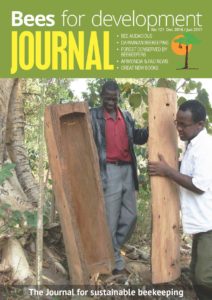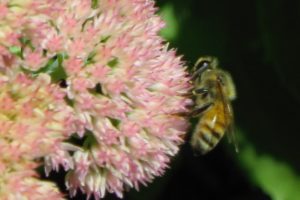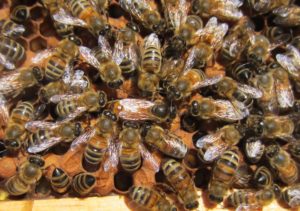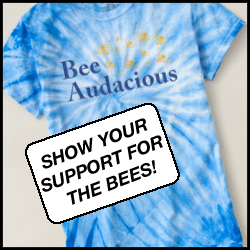Report Back – Tom Seeley
What turned my crank at the Bee Audacious conference?
by Tom Seeley
It is now three weeks since we left our lovely Bee Audacious conference at the Marconi Center, and since then I’ve found myself reflecting most on what I heard people say about why they value bees and why we should protect them. These values lie at the heart of why we all assembled at this conference, so I listened closely and took notes as best I could.
As expected, I heard many people talk about the value of bees for food production, mainly as pollinators rather than honey makers. It quickly became clear that everyone knew that “every third bite of food requires a pollinator.”
What I did not expect, though, was hearing so many people talk about valuing bees for reasons separate from producing food for humans. Here are some examples.
“It is a matter of environmental sustainability, ecosystem health. Nature needs bees.”
“I value bees for themselves.”
“Bees are a way of connecting city dwellers with nature. They can see bees.”
“Bees are being treated poorly, with feedlot beekeeping and migratory beekeeping. We need to get back to our roots.”
“The precautionary principle: When in doubt, be careful. We are in doubt a lot about the bees, but we are not being careful enough.”
“Honey bees teach trust. People can mirror the cooperation of bees.”
“Gardening for bees provides inner quiet in a city.”
“Planting flowers and seeing them visited by bees increases people’s sense of self-worth and helps them develop focus and attention. Nobody is too poor or too disabled to plant flowers and watch bees.”
“Beekeeping is my most optimistic activity. It shifts my attention from the present to the future. How will the colony grow?”
“I love my honey bees for the pleasure of their company!”
Hearing so many people talk about how they value bees, usually honey bees, as much for their spiritual benefits as for their importance in keeping the world flowering and fruitful, I was inspired to write an article that I will submit shortly for publication in the American Bee Journal. In it, I develop more fully the idea of Darwinian Beekeeping that I outlined at the conference. This is an idea that I think will be most useful to folks who have just a few colonies, have low expectations for honey crops, and get most of their pleasure from watching their bees and sharing them with others.

Professor of Biology, Cornell University
The essence of Darwinian Beekeeping is letting the bees live as naturally as possible, so they can make full use of the toolkit of adaptations that they have acquired over the last 30 million years. I want to stress that it is not a recipe for let-alone beekeeping. Indeed, it requires diligent beekeeping, especially in monitoring colonies for high levels of Varroa and preemptively killing colonies that develop skyrocketing mite populations. Doing so selects against colonies without resistance to Varroa, it creates selection against highly virulent mites, and it prevents resistant colonies from getting fatally flooded with Varroa from the neighbors.
What I am calling Darwinian Beekeeping is part of a growing movement toward Natural Beekeeping, aka Sustainable Beekeeping, Apicentric Beekeeping, and Bee-friendly Beekeeping.
I think that Darwinian Beekeeping will play an important role in guiding this movement because it is grounded in a solid, evolutionary perspective on beekeeping. It will be most appropriate for small-scale beekeepers who want to have a few colonies to boost the pollinators in their neighborhood and to have fun watching their bees’ activities. I have had good conversations about this with Mark Winston, and he has pointed out that unlike many of the other ideas from our Bee Audacious conference, developing good practices for Darwinian Beekeeping is “one thing that we can do within our small beekeeping community without having to rely on others.” I hope it will be just one of many ways our conference will lead to improving the health of bees in general and the pleasure of beekeeping in particular.

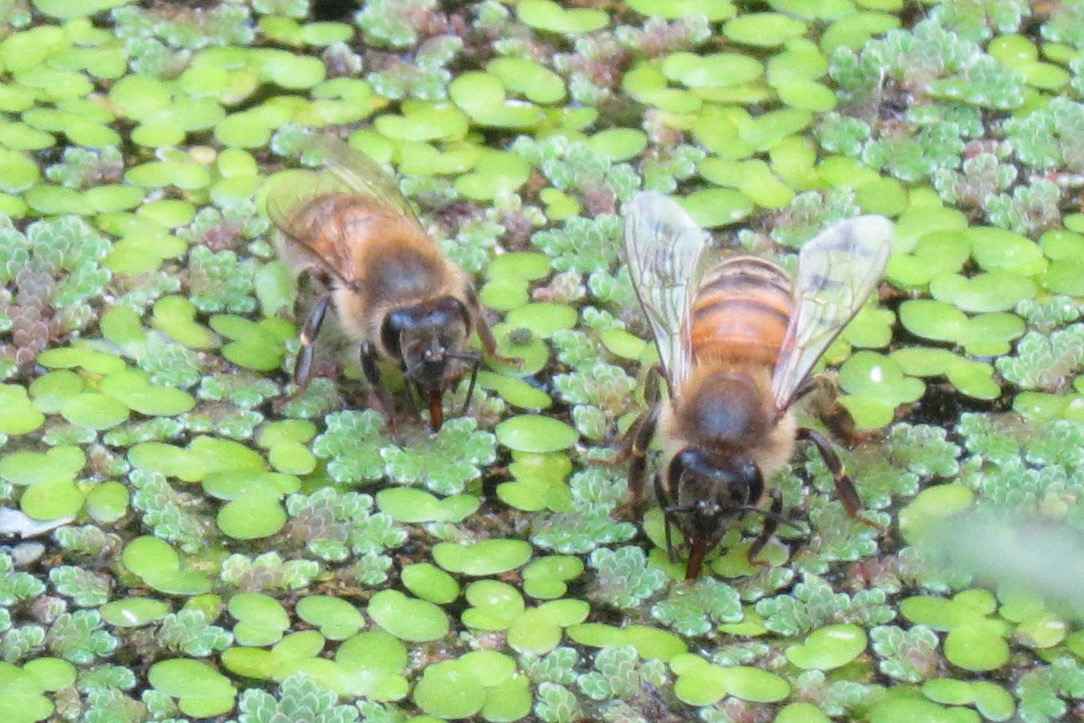
 Previous Post
Previous Post